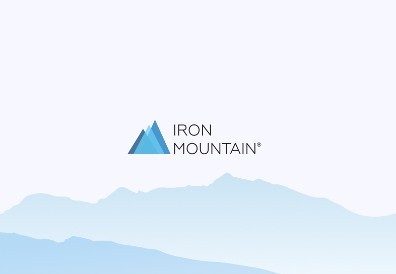Environment agency case study: benefits of good records management
The Environment Agency saves money and gets better visibility and control of paper archives through consolidation with Iron Mountain

Greater Efficiency With Strong Governance
The Environment Agency saves money and gets better visibility and control of paper archives through consolidation with Iron MountainIndustry
Public Sector
Challenge
Save money and get better visibility of paper archives
Solution
Consolidate records from 18 different agencies
Value
Standardised approach to records management
Greater transparency and accountability
Storage costs reduced by nearly a third
Complex Archiving Estate
Established in 1996 to help protect and improve the environment, the Environment Agency (EA) is an executive non-departmental public body. Employing around 10,600 people in offices throughout England, its responsibilities include regulating major industry and waste, conservation and ecology, flood defence, water quality and resource, and the treatment of contaminated land.
Maps, flood risk assessments, and business use permits for regulated industries are among specialist EA paper records. HR files, finance records and legal papers add to the tide. For regulatory and legal compliance, as well as good business practice, much of this needs to be retained. Archive files had traditionally been stored off-site under a range of different agreements.
“We had seven regional contracts with different suppliers plus eleven local agreements,” explains Hazel Callaghan, facilities contract support officer.
“The scale of the project has been vast, with multiple challenges, but Iron Mountain remained engaged and flexible throughout.”
Simon Ayre
Records Management Advisor
Environment Agency
Dedicated Project Team
Iron Mountain® appointed an on-boarding team to work with the EA and help develop a transition plan to consolidate 36,700 boxes of records. This team went on to manage the project interface with existing storage suppliers and engage in regular reviews.
Records management advisor, Simon Ayre, takes up the story: “Consolidating our off-site storage with a single supplier helps us standardise our processes. It also provided the opportunity to improve stored items’ metadata and weed out unnecessary inventory.”
An early challenge was to standardise inventory metadata fields. Once agreed, amends were made to the Iron Mountain Connect™ online records management portal. “For example, we could modify the names of template record fields to make them more understandable for our people,” says Simon Ayre.
Greater Control and Accountability
The transition was scheduled supplier-by-supplier over two years to coincide, where possible, with the end of existing commercial agreements. If mandatory information was missing, box owners were contacted and asked to provide the data or give advice on possible disposal. If ownership remained in doubt, boxes were quarantined for further investigation.
“We have a records management network of 550 people with lead co-ordinators in each region,” says Simon Ayre. “Moving to the Iron Mountain central contract allowed us to improve accountability for off-site storage, helping the business retain only what we really need.”
Boxes can be ordered for retrieval and new records sent to store through the Iron Mountain Connect portal. Now, rather than having to rely on the central facilities team, the Iron Mountain Connect portal allows designated people in local teams to place their own retrieval orders. This has simplified and accelerated the process.
“We saw an immediate 15 per cent saving on storage costs. The subsequent review of inventory enabled the disposal of 4,800 boxes to date, for a further 13 per cent saving.”
Hazel Callaghan
Facilities Contract Support Officer
Environment Agency
Rapid Return on Investment
The financial benefits are substantial. “We saw an immediate 15 per cent saving on storage costs,” says Hazel Callaghan. “The subsequent review of inventory enabled the disposal of 4,800 boxes to date, for a further 13 per cent saving.”
Every Wednesday, Iron Mountain provides a collection and delivery service to any one of ninety EA offices that request service. Orders placed before 3.00 p.m. on Tuesday are scheduled for delivered the next day; whereas orders placed after that are delivered the following Wednesday. There is a 24-hour option for more urgent requirements, subject to EA authorisation.
Improved Transparency
Costs are transparent, with Iron Mountain giving a monthly report of storage charges and inventory movements. Meanwhile, having all off-site storage with a single vendor has standardised records management processes.
“The facilities team can use the Iron Mountain reports to re-charge for storage services through internal transfer charging,” says Hazel Callaghan. “That means even greater accountability.”
Although the transition is nearly complete, Iron Mountain and the EA are having bi-weekly meetings to explore further areas for collaboration. Simon Ayre sums up: “The scale of the project has been vast, with multiple challenges, but Iron Mountain remained engaged and flexible throughout. Having a designated on-boarding team and a central point of contact was critical.”